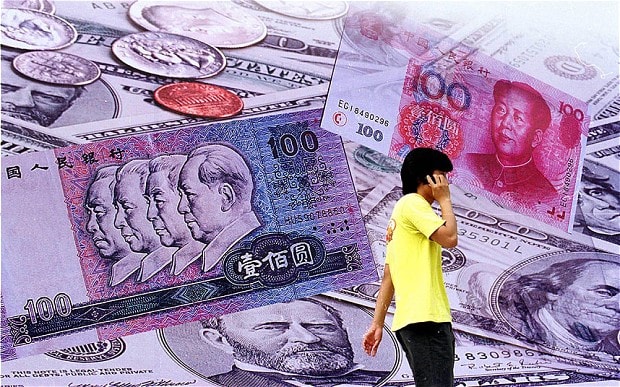China asks to stop buying their bonds

China is currently in the midst of a bull market, although it appears that Beijing is not particularly fond of this situation. Amidst the sluggish performance of stock and housing markets in China, Chinese government bonds have emerged as a notable asset. The yields on 10-year government bonds have decreased to approximately 2.18% compared to the previous year’s rate of around 2.6%. In most countries, particularly those facing a concerning slowdown such as China, that would be seen as a positive development. However, the authorities have made significant efforts to curb the surge in bonds they release.
Things are beginning to show progress. China’s government bond yields have experienced an increase in the past week as state-backed banks have become significant sellers. In addition to contributing to the reversal of the rally, it was announced last month that China’s central bank has entered into agreements with brokers to borrow a significant amount of yuan in government bonds. (100 billion yuan is equal to $14 billion). Regulators have increased their scrutiny on banks that have been involved in the bond market. It is a common practice for central banks worldwide to involve themselves in their bond markets. However, it is less frequent for them to take action to increase yields. Last month, China’s central bank decided to reduce its short-term rates. Beijing’s recent actions to manipulate bond yields in the opposite direction raise concerns about the state of its economy.
According to the official explanation, banks are concerned about potential losses if the bond rally takes a sudden turn. They have pointed to Silicon Valley Bank as an example of this risk. The bank experienced a severe run last year when depositors became concerned about the unrealized losses it had on its balance sheet from U.S. Treasury bonds purchased prior to the Federal Reserve’s interest rate hikes. There were clear indications of an excessive enthusiasm in Chinese government bonds. Trading volume had experienced a significant increase and certain price movements were displaying irrational behavior: A 30-year government bond issued in May experienced a surprising 25% increase in trading on its first day, which is quite unusual for the typically uneventful government bond market.
However, there are compelling underlying factors driving investors towards low-yielding, yet fundamentally secure assets. China’s economy continues to struggle, primarily due to the collapse of its housing market. Instead of being concerned about inflation, which is an issue in the U.S. and Western Europe, the problem lies in the downward pressure on prices. In July, China’s core consumer-price index, which does not include food and energy, saw a year-on-year increase of only 0.4%, a slight decrease from the 0.6% rise in June. Moreover, the available investment options are not very promising. China’s CSI 300 index, which monitors the largest stocks listed in Shanghai and Shenzhen, has experienced a 3% decline this year following three consecutive years of losses. The property market, once a favored investment choice for Chinese households, continues to struggle. In July, new home prices in 70 major cities experienced a 5.3% decline compared to the previous year.
Beijing’s primary concern may not lie in the low bond yields themselves, but rather in the implications they hold for China’s economy. It seems that banks are increasingly inclined to keep their money in government bonds, rather than lending it out, which could be a cause for worry. In a nation where the government has the power to suppress negative information, such as economic pessimism in the media and online, bond yields serve as an undeniable indicator of trouble that cannot be controlled or hidden. Government nudging may have some potential for success, particularly in a tightly-controlled financial system. However, in order for bond yields to experience a lasting increase, Beijing must address the underlying issues that are impacting the economy. This includes resolving the housing market, promoting consumption, and rebuilding investment confidence.


